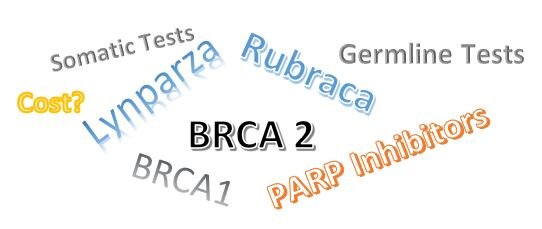We are happy to announce that on July 30, 2019, the Food and Drug Administration (FDA) approved a new drug, darolutamide (NUBEQA®, Bayer HealthCare Pharmaceuticals Inc.) for the treatment of men with non-metastatic castration-resistant prostate cancer.
Germline Mutations As Prognostic Indicators of Castrate Resistance
Evaluating PSMA-Targeted Radionuclide Therapy
Is There A Role for Testosterone Therapy in the Treatment of Metastatic Prostate Cancer?
There has long been a discussion about the possible effects of using testosterone as a treatment for men with advanced metastatic prostate cancer. In a poster presentation at ASCO 2019, it was shown that there are androgen receptor changes in the circulating-tumor DNA (ctDNA) in men with metastatic castration-resistant prostate cancer (mCRPC) treated with high-dose testosterone.
Is ADT Necessary Along with Zytiga?
ADT With and Without Xtandi in Men with Metastatic Hormone Sensitive Prostate Cancer: The ARCHES Trial
Short Term ADT with Radiotherapy As Salvage Treatment After Surgery: Update at 9 years of the GETUG-AFU 16 phase III Randomized Trial
Darolutamide - Great Results From The ARAMIS Trial For Men With M0 Prostate Cancer
The ARAMIS Trial showed that darolutamide increased overall survival for men with prostate cancer, it delayed the time to the use of cytotoxic chemotherapy as well as improving the important quality of life (QoL) measures of time to pain progression, and time to developing a symptomatic skeletal-related event.
The ENZAMET Study: Adding Enzalutamide to ADT in Metastatic Hormone-Sensitive Prostate Cancer Extends Survival
An Important Update on the Use of Radium in Combination with Zytiga and Xtandi
When to Start ADT With A PSA Only Recurrence
Reporting on Apalutamide (Erleada) for Castrate Sensitive Prostate Cancer
The use of apalutamide (Erleada) improved radiographic progression-free survival with a 52% reduction in risk of death or radiographic progression; that benefit was observed across all subgroups analyzed in the TITAN TRIAL for men with progressing prostate cancer that is still hormone sensitive. The median radiographic progression-free survival was not reached in the apalutamide group and was 22.1 months in the placebo group.
Cancer ABCs is Partnering with Man Cave Health
The Man Cave is a unique patient care model that combines educational resources, emotional support, and the latest medical technology. They are creating sports-themed facilities where men can feel at ease, complete with a team of friends, medical professionals, educators, and advocates ready to help them take control of their healthcare journey.
Legislation Introduced to Protect Patients from Surprise Out of Network Medical Billings
Lower PSA Yields Longer Survival with Provenge Treatment
What We Are Missing In Prostate Cancer Treatments
Lower Doses of Zytiga with Food
Insights into the Management of Oligometastatic Prostate Cancer
How best to treat oligometastatic prostate cancer is still not clear, but there are several on-going studies designed to determine what should be best practices. Although not yet completed, these studies do indicate that metastasis-directed therapy (MDT) and local therapy targeted to the primary tumor (in the prostate gland) may be of benefit in the setting of oligometastatic disease.






